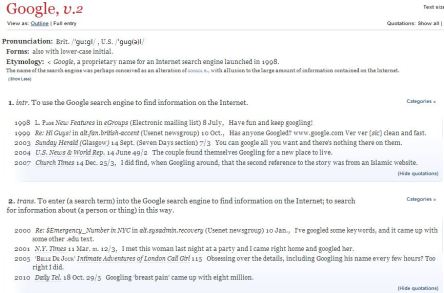
So I have debated this for many months. Memory has always fascinated me. It’s so fallible and yet so crucial to our everyday lives. So crucial that we take it for granted and assume it to be correct.
This has been a theme to a lot of my understanding of how flawed science and our general logic capabilities, but it wasn’t until my grandfather’s second wife developed a dementia that I realized just how tragic this entire scenario is.
In this I have realized four “truths.”
When I went to New York this summer I took well over 1500 photos. I am pretty sure my mom was contemplating murder by the end of it, but I had to capture every moment in bytes. When I got home and realized how many photos I had taken I was shocked, it’s a lot to go through an pare down for sure. What surprised me was that I realized I had been taking the photos not as much so that I could post these photos online for all my friends to see what a fabulous time I had, but because I wanted to remember those moments. Like I was expecting in that moment to forget. Aware that one day I would be unable to recall everything we did and the colour of the sky as I ran in Central Park for the first time. The unfortunate part, I soon realized, is that the pictures, my memory, or both failed to do the moments justice. This is the first truth – we live expecting to forget, and thus we live constantly trying to grasp the past. And then the second truth hits – we lost the moment the instant we begin to reflect on its existence. Never again will you be able to perfectly recapture in any form that moment.
I am a little young to be worried about lost memories, but our brain, as much as we are told is virtually limitless in capacity, is limited by our ability to retrieve what is stored. Like losing the key. And that is tragic. I have been very fortunate to have some amazing experiences in my life. I have traveled, I have met some amazing people, I have eaten some amazing things, but somewhere in the jumble of hectic mornings running out the door we lose a chunk of our lives – we only get to keep the very best and the very worst moments. But sometimes the small moments are the best moments, or at the very least, they are the moments that tell the world who we are, what we want, and what we fear.
What I want most to remember, is the taste of the first time I had penne alla vodka at a restaurant in Mont-Tremblant. I want to remember the feeling cuddling against my boyfriend watching TV – the way his arms curved around me, making me feel safe. I want to remember all the afternoons playing “Little Skunker” with my grandmother. Instead, I have the third truth – We only get a vague recollection of the small moments that add up to who we are. As time goes on the memories get thinner and thinner.
As mentioned, my grandfather’s wife (step-grandmother? Is that a thing?) has been diagnosed with a dementia. I have studied it in school many times, even considered dementias as a potential area I would like to do my graduate studies in, but it doesn’t feel the same when it’s no longer a dry passage in your textbook or 2 hours in a lecture and 3 questions on the final. And now we come to the final, and most painful truth in memory – our memories help us to define who we are. I am a runner, I am a psych major, I am a daughter, aunt, sister, and girlfriend, I have a best friend with amazing taste in wine, I have a friend with an infectious laugh and a love of Disney, and I have a friend I have known since birth. I have accomplished some pretty badass stuff in my life, if I may toot my own horn so to speak. To forget how amazing I have grown to be. To forget all the things in my life that make me happy, heck to forget how I like my coffee and have to suffer through the experimentation again – that makes me sad.
Dementias show you just how tragic memory is. How apparently flawed the evolutionary system is. We have this massively powerful machine capable of remembering almost anything – it’s a large part of what has enabled us to have complex social relationships. Yet, your brain can deteriorate. This is not a unique thing, all the other organs can break down, but, unlike any other organ that can break down, when your brain deteriorates, it takes pieces of you with it. I have never strongly cleaved to the idea that the brain is responsible for “me-ness” – I have struggled to accept this reductionist argument, but perhaps in dementia I can see things a bit more clearly. My grandfather will have to watch as the woman he loves slowly forgets their life together and who she even is. And that is the most painful moment I think – having someone right there, they are still alive and breathing but merely a shell of who they were – alive but dead in a sense.
While I do not have the training to even begin to identify where consciousness is in the brain, perhaps I don’t need it. I wrote several months back that consciousness might be where you-ness lies, where the seat of our being independent of the brain can be located. But I seem to have trapped myself in a corner again, because it seems that as the brain and its memory deteriorates, so too does the self. So perhaps consciousness is the seat of the self, but perhaps it is not alone. Perhaps mind-body dualism had a point – the two interact to create a self that cannot survive without the other.








